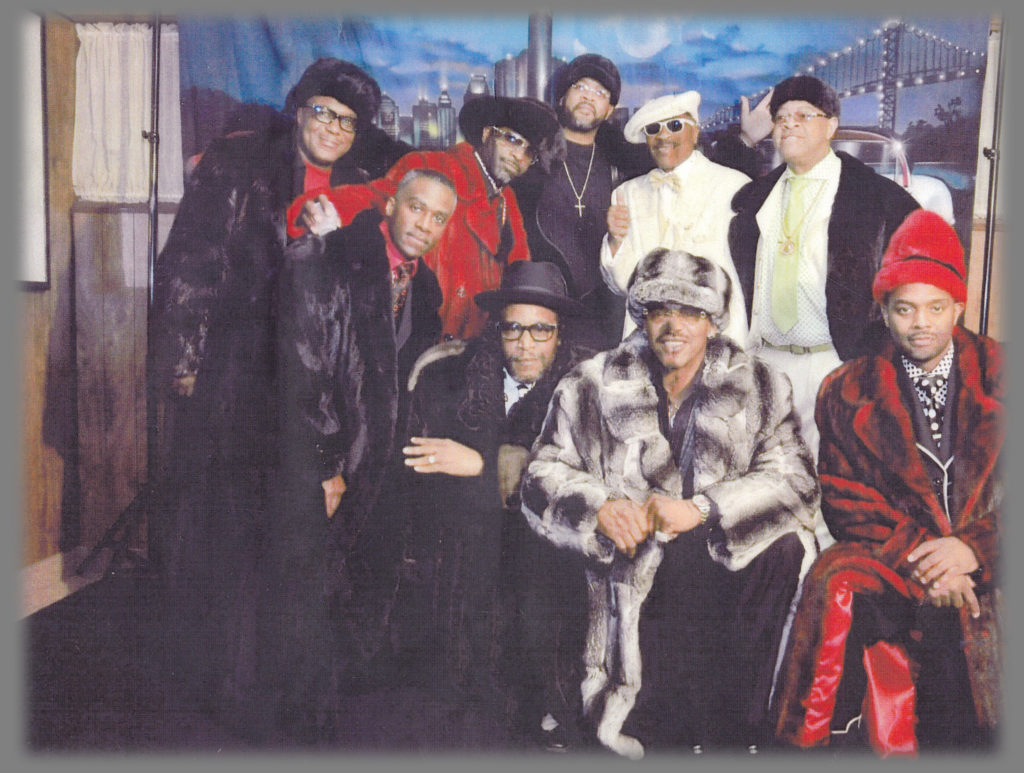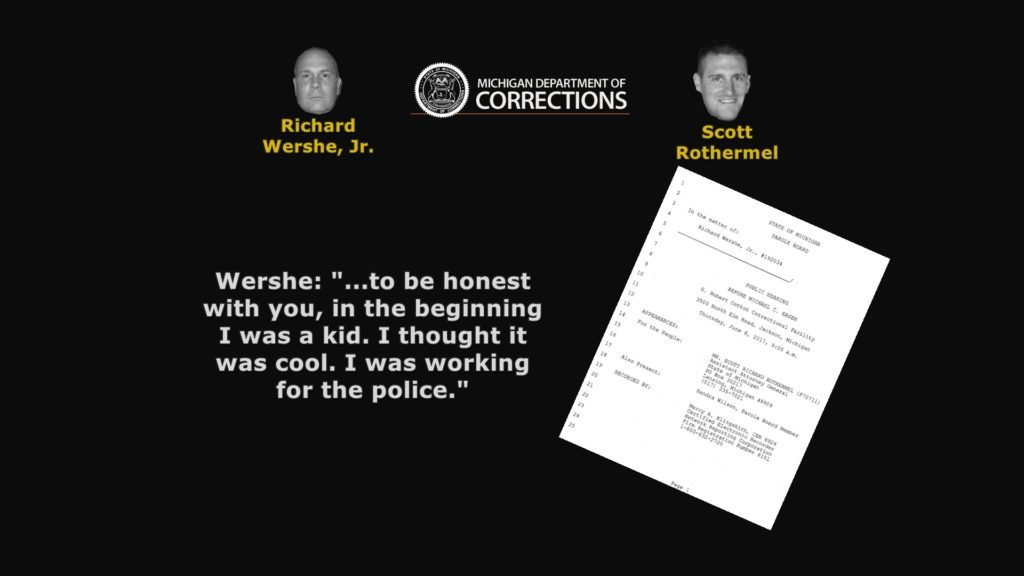Feds say statute of limitations invalidates his lawsuit
Richard “White Boy Rick” Wershe, Jr., the youngest paid drug informant in FBI history, missed the boat. The train left the station. He’s too late.
Whichever cliché you prefer, attorneys for two FBI agents (one is deceased) and two former Assistant United States Attorneys argue in a motion-to-dismiss filed Friday, April 22, 2022, that the federal statute of limitations has expired on the issues and incidents Wershe claims entitle him to a bazillion dollars in damages from the federal government.
Wershe is expected to plead for so-called equitable tolling, claiming the judge should waive the statute of limitations rules because he was in prison for most of his life. The defense attorneys have noted Wershe filed numerous lawsuits and court pleadings while he was in prison so his “equitable tolling” argument is contradicted by his litigation from prison.

Here’s the Background

Wershe has sued the City of Detroit and the U.S. government, charging among other things, child abuse inflicted on him by FBI agents and Detroit Police narcs who were on a task force investigating the so-called Curry Brothers drug gang in the mid-1980s. Wershe was friends with and a frequent associate of the youngest Curry brother, even though he, Wershe, was only 14-years old.

This young white kid in a racially changing neighborhood on Detroit’s east side was an ideal target for FBI informant recruitment. His name is Richard J. Wershe, JUNIOR. His late father was Richard J. Wershe, SENIOR. This would be an important consideration for what followed.
Through surveillance and informants, the FBI learned of Wershe’s association with the Currys. They recruited the younger Wershe to become a paid secret drug informant, but FBI official records would list his father as the bureau’s snitch named Wershe.
A pair of federal agents showed up at the Wershe home one morning and asked Richard Wershe, Sr. for help identifying some men in some surveillance photos. Wershe sat down with them at a table and admitted he didn’t know who they were but his son might. Rick Wershe, Jr. had been nearby watching and listening. The teen was invited to the table and promptly identified several of the men by their street names.
The FBI agents knew the kid was a potential gold mine of information about the Curry Brothers gang. And they had a clever idea. Richard J. Wershe, Jr. would become their snitch but they would list Richard J. Wershe, Sr. as the confidential paid informant in the FBI’s files.
Wershe’s federal lawsuit implies he became an FBI informant in a chance encounter with federal agents in a fast-food joint. That’s not even close to the truth.
In an interview before his death, James Dixon, one of the agents who recruited the youngster, told me they would meet with Wershe Sr. and Jr. at fast food restaurants across town and the teen would offer up detailed information about the Curry drug operation. His father had little to say at the covert meetings. Before his death, Richard Wershe, Sr. confirmed this version of how the informant relationship began in an interview with a reporter for the now-defunct Atavist magazine.
Dixson told me, “Especially after they started getting money, he (Rick Wershe, Jr.) he would come in with all kinds of information.”

Dixon said Richard J. Wershe, Sr. didn’t seem the least bit concerned about putting his son in harm’s way as a snitch against a drug gang in exchange for informant cash.
A Hot Snitch

Rick Wershe, Jr., known in drug circles as White Boy Rick, turned out to be the Detroit FBI’s most useful drug informant for several years in the 1980s.
In his lawsuit against law enforcement, Rick Wershe, Jr. claims he worked as an informant out of fear, claiming he was as afraid of law enforcement as he was of the drug pushers.
Which Wershe Story is a Lie?
That’s totally contradicted by his sworn testimony to the Michigan Parole Board in 2017.

Under questioning by Assistant State Attorney General Scott Rothermel, Wershe said: “To be honest with you, in the beginning I was a kid. I thought it was cool. I was working for the police.”
Rothermel: “Is that what drew you to this or drew you and kept you in at the beginning?”
Wershe, Jr: “That and the money.”
In his 2017 appearance before the parole board Wershe never mentioned working as an informant out of fear.
In his informant days, it wasn’t long before young Richard Wershe became blinded by the bling and mounds and mounds of cash surrounding the dope dealers. He decided to become a cocaine wholesaler—a “weight” man—supplying coke to Detroit’s street dealers.
A Teen Doing Life in Prison

His dream was short-lived. He was busted by the Detroit Police as he received a shipment of over 17 pounds of cocaine. At age 17 he was sentenced to life without parole under Michigan’s former drug law mandating a life sentence for anyone convicted of possessing more than 650 grams. Wershe was caught with nearly 8,000 grams.
After relentless efforts by Wershe’s appeals attorney, the late Ralph Musilli, and considerable media pressure, the Michigan Parole Board finally granted Wershe a parole in 2017. But he remained behind bars in a Florida prison where he was doing time for a car fraud scheme concocted while he was in prison in the federal witness protection program in that state. The feds he is suing now had worked to get Wershe out of state prison and into a federal protection prison. Wershe lost his place in the witness protection program when he got involved in the car case. Wershe was finally freed in 2020 after three decades in prison.

Detroit federal judge Shalina Kumar must decide if Wershe’s lawsuit should be dismissed because it was filed past the time allowed under the statute of limitations. Wershe, who swore to the Michigan parole board he wanted nothing to do with drugs ever again, is now in the marijuana business and busy peddling weed legally.

Leave a Reply